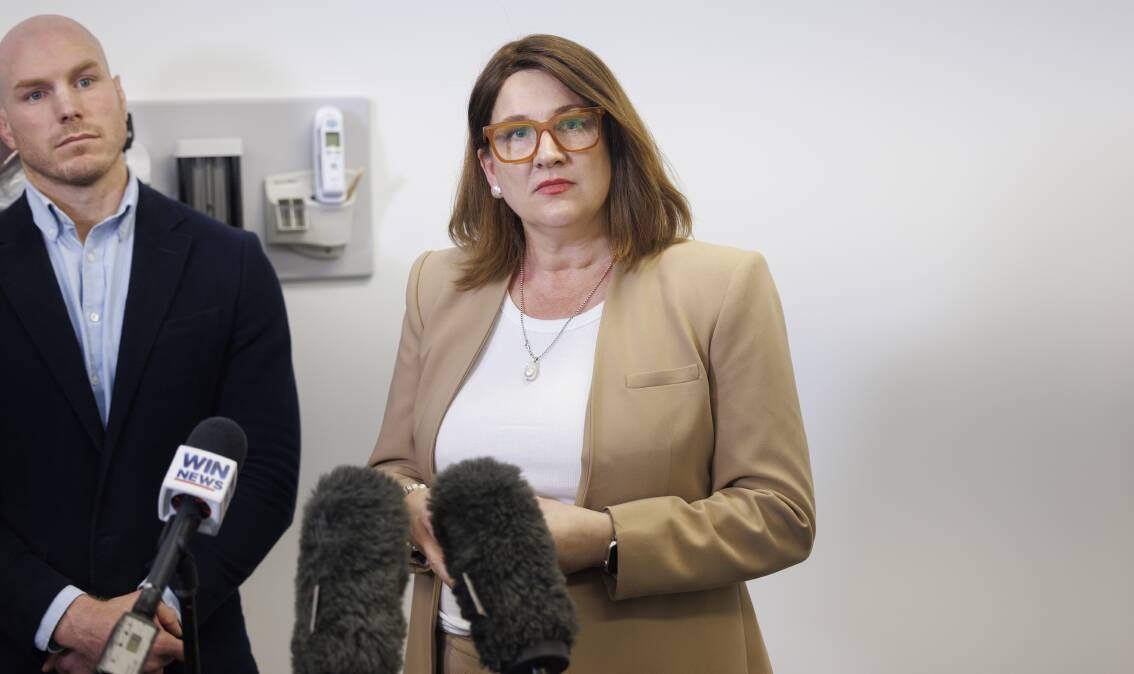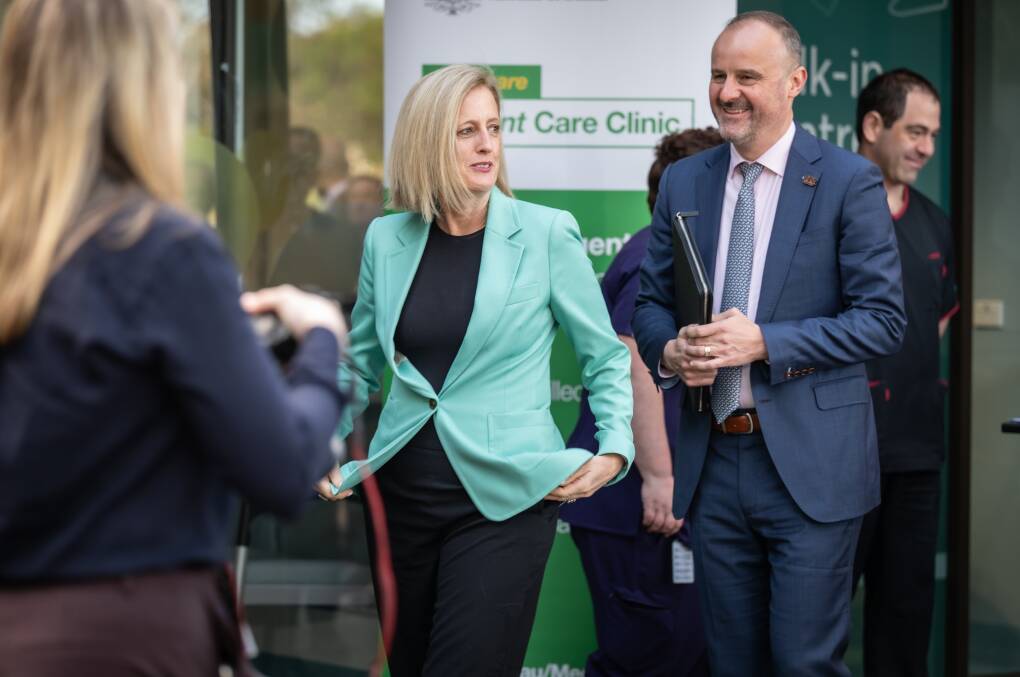The Royal Australian College of General Practitioners have said the ACT government has "cheated Canberrans" over an announcement to incorporate walk-in centres into the Commonwealth's urgent care clinics.
Canberra's nurse-led walk-in centres will receive extra funding to join the rollout of the federal government's Medicare urgent care clinics trial. The $7 million in funding will be for new equipment and new staff at the centres.
But the college described the announcement as a slap in the face as the centres will not include general practitioners.

"Every other state in Australia has rolled out urgent care clinics staffed by highly trained GPs and nurses working together collaboratively to provide high quality emergency care to patients," RACGP president Nicole Higgins said.
"Many are built within existing general practices, which strengthens existing community health services and avoids duplication and wastage of public funds.
"Canberrans won't be able to access an urgent care clinic within the general practice they know and love. Canberrans have been cheated."
Dr Higgins said leaving general practitioners out would lead to "inefficiencies, duplication of care and higher costs".
Federal Labor made a $135 million election commitment to trial the urgent care clinics. Prime Minister Anthony Albanese said last week there would be 58 centres across Australia.
All of the urgent care clinics will be based either in existing GP clinics or health centres and are intended to provide walk-in, bulk-billed care for minor injuries and illnesses.

The ACT launched the nurse-led walk-in centres in 2010 and they provide health care for non-life threatening injuries and illnesses.
General practitioners have previously been critical of the nurse-led walk-in centres. ACT senator Katy Gallagher, who was the territory's health minister when the walk-in centres were launched, said it was important to have a system of health centres working together.

"I think you've seen that the demand for health care, the pressure that GPs are under, there is a good ecosystem of community health facilities here in the ACT, they work alongside each other," she said.
The federal government's investment will include funding for more nurse practitioners and advance practice nurses.
Australian Nursing and Midwifery Federation director of organisation and membership Carlyn Fidow welcomed the addition of extra staff but said more was needed to improve and protect the service.
"While this is a step in the right direction, the ANMF considers that there is more work to be done in improving and protecting nurse-led services, and will continue to work to protect nurse-led services in the ACT, increase scope of practice for nurse practitioners and ensure that all nurses can work to their full scope of practice," she said.
The Australian Primary Health Care Nurses Association also welcomed the move, saying nurse practitioners were highly skilled and the expansion recognised the success of walk-in centres.
"These clinics are an example of nurse skills being used effectively to improve access to timely care in conjunction with other ACT health services," the association's president Karen Booth said.
Opposition health spokeswoman Leanne Castley said the government had not consulted with general practitioners about the move.
"It is disappointing to hear that the ACT government hasn't consulted properly with GPs on urgent care clinics," she said.
"General practice plays an important role in the ACT and what we hear from our local GPs is that they are struggling."
Federal opposition health spokeswoman Anne Ruston said it was "absolutely shameful" that the ACT clinics would not have a single doctor on site.
"This represents a blatant disregard for the headline health promise that Labor made to the Australian public prior to the last election, which they have broken in more ways than one," she said.
"The government seems to be merely rebadging existing clinics with no guarantee that they will be open for extended hours. This is far from providing the promised improved access to critical healthcare and reduced pressure on hospital emergency departments."
Walk-in centres are supposed to help in diverting people away from the emergency department but ACT Health's annual report for 2022-23 has shown a deterioration in wait times.
Fewer than half of all patients stayed in the emergency department for less than four hours. Only 47.9 per cent of patients were out of the emergency department within four hours but ACT Health had a target of 90 per cent.







